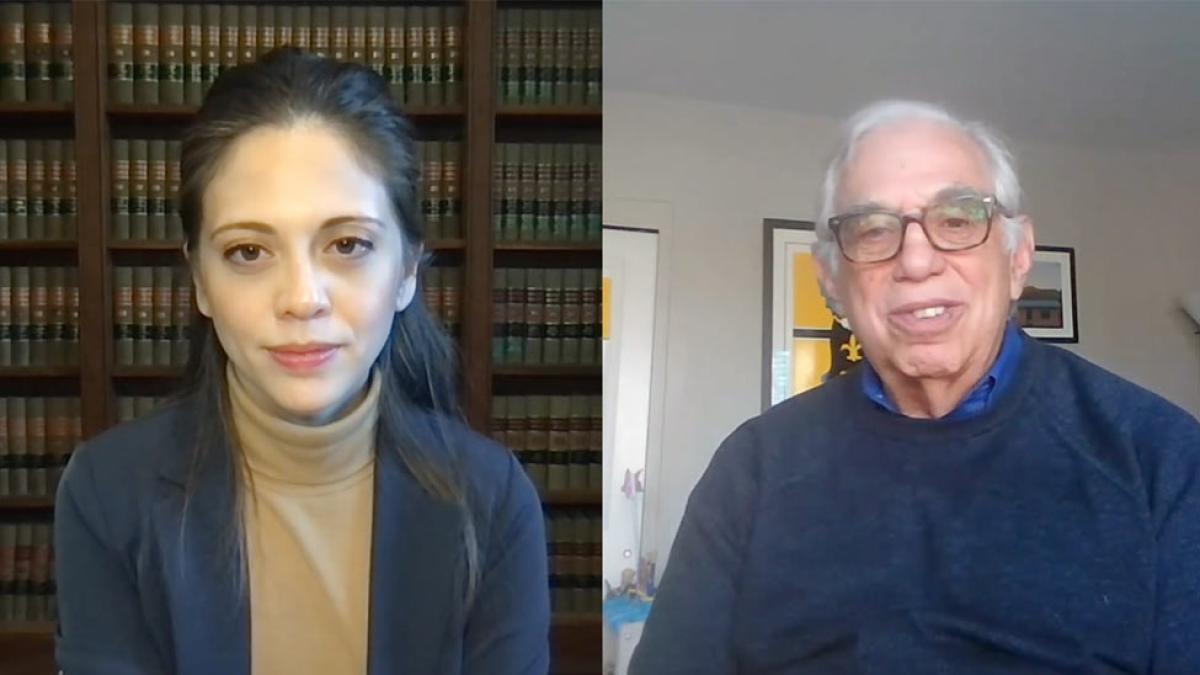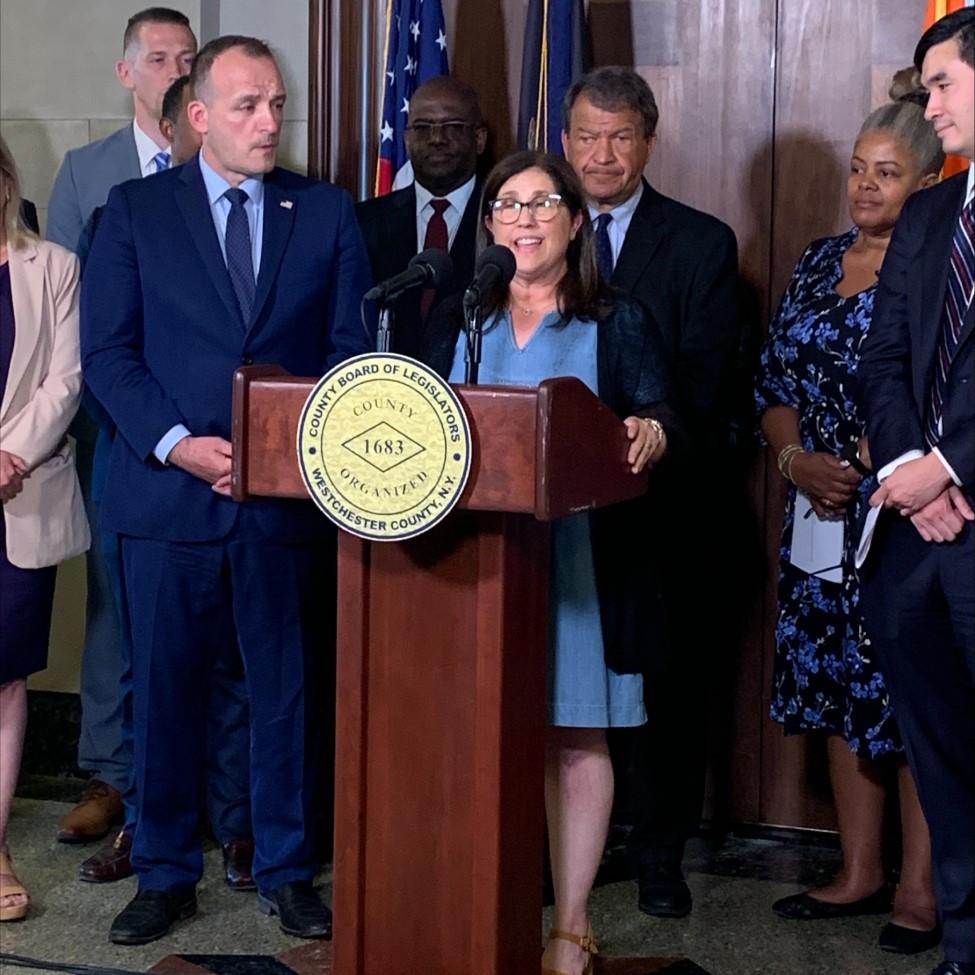
Seidenberg Faculty and Students Present Research at International Conference
Dr. Miguel Mosteiro, Associate Professor at Seidenberg, successfully presented two of his experimental research papers at the 2024 NETYS (The International Conference on Networked Systems) conference.
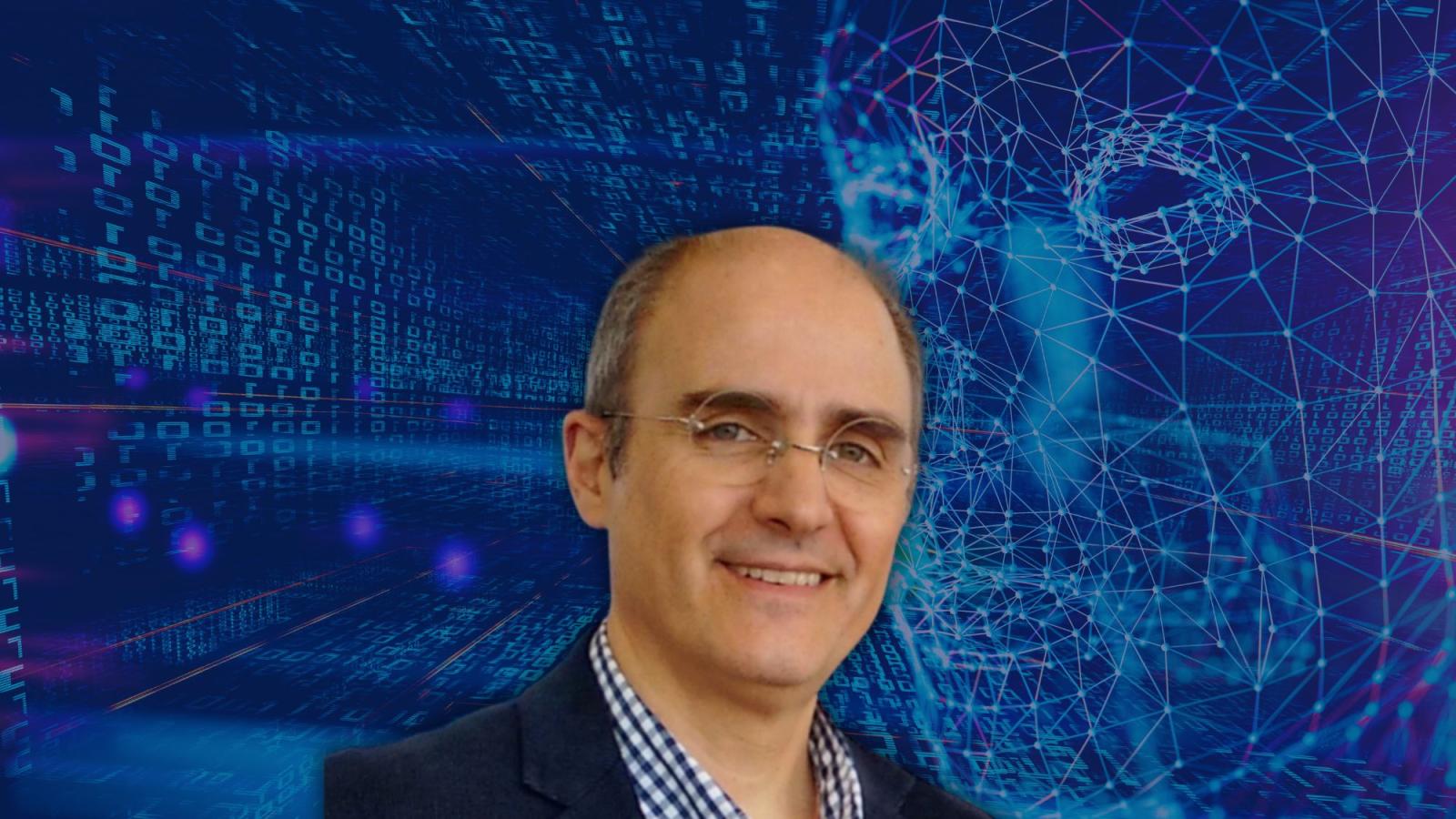
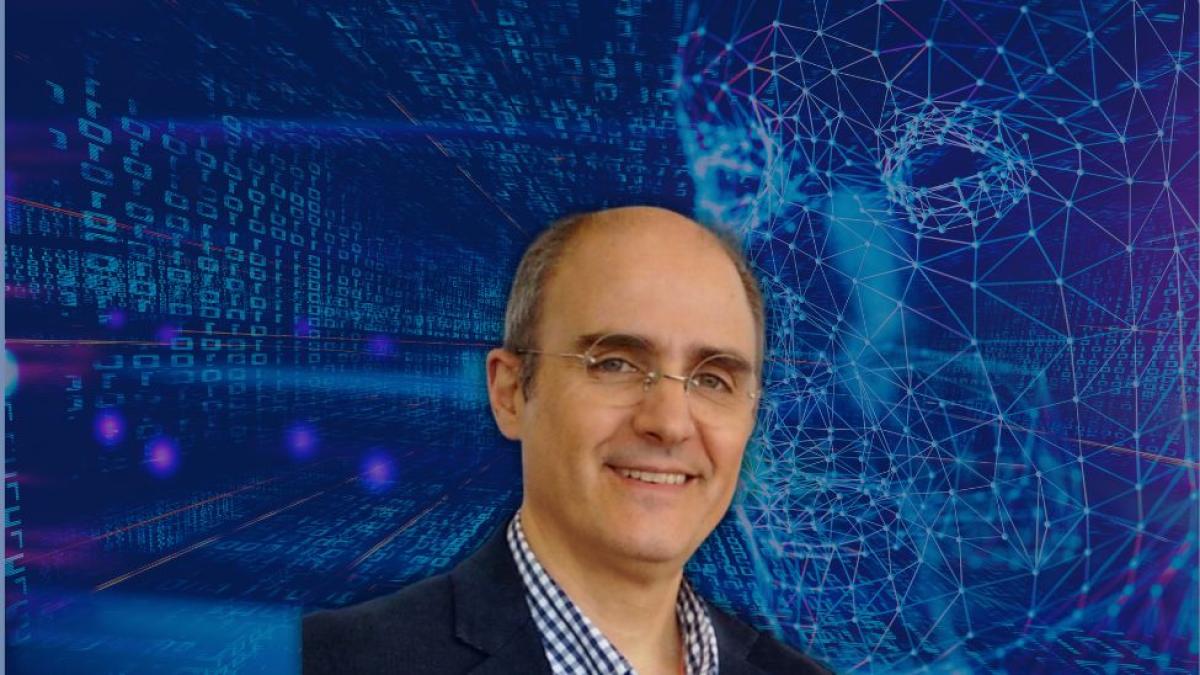
Dr. Miguel Mosteiro, Associate Professor at the Seidenberg School of Computer Science and Information Systems, successfully presented two of his experimental research papers at the 2024 NETYS (The International Conference on Networked Systems) conference.
This selective and high-level conference aims to bring together researchers and engineers from the theory and practice of distributed and networked systems. The program committee includes many scholars who are ranked top of the field in distributed computing worldwide.
When talking about his presentations at the conference, Dr. Mosteiro said that he was “particularly proud because both papers are coauthored by some of my students, and the topic of both papers is exciting for different reasons, which is reflected in the interest shown by the reviewers. Both works triggered interest and were followed up by great questions that leave room for further development of the projects.”
The first paper, titled "Distributed Station Assignment through Learning", was co-written by Dr. Mosteiro, Lu Dong, and Michelle Wang, both of whom are Pace PhD students. Their work is an experimental study of a scheduling problem called Station Assignment, where mobile users of a wireless network need to upload data to static base stations, while minimizing energy consumption in various aspects. This was done by applying machine learning approaches developed by OpenAI, which are at the forefront of AI research.
"Privacy Preserving Vehicular Adhoc Network Computations: A NYC Taxi Trips Evaluation", the second paper presented at the NETYS conference, is an experimental study of algebraic computations in vehicular networks which was carried out on data extracted from a huge public database of New York City taxi trips. This work was co-authored by Dr. Mosteiro, Austin Powlette (undergraduate Seidenberg student), and Dariusz R. Kowalski (external colleague from Augusta University).
Congratulations to Dr. Mosteiro, as well as his students and collaborators, on this fantastic achievement!
Trailblazers in Higher Education
Under Horace E. Anderson Jr., Pace University’s Elisabeth Haub School of Law has increased its enrollment, donations, full-time faculty and partnerships with leading universities worldwide. Anderson, an intellectual property and technology law specialist who joined the faculty in 2004, recently established the Sustainable Business Law Hub, a research incubator devoted to global sustainability. The school now boasts the nation’s top-ranked environmental law program, according to U.S. News & World Report. Anderson also strengthened social justice and community ties through the new Pace Access to Justice Project.
Justin Timberlake's arrest, statement elicited a cruel response. Why?
"His rise to stardom (particularly post-NSYNC) ripened from celebrity women like Britney Spears and Janet Jackson and illustrated how gender, misogyny, race and white male privilege operated in the entertainment industry," says Melvin Williams, associate professor of communication and media studies at Pace University.
Google Is Turning Into a Libel Machine
Someone who reads a false, AI-generated statement, doesn’t confirm it, and widely shares that information does bear responsibility and could be sued under current libel standards, Leslie Garfield Tenzer, a professor at the Elisabeth Haub School of Law at Pace University, told me.
Beware When a Company Says It Is Trustworthy
The takeaway, according to Myo Jung Cho, a professor of accounting at Pace University’s Lubin School of Business and the paper’s other co-author, is that rather than convey a company’s virtue, trust words may instead act as a red flag, highlighting potential pitfalls for investors and regulations.

Pace Women’s Justice Center Executive Director Cindy Kanusher Speaks on the Recently Enacted Safety Measures for Survivors of Domestic Violence Act
Together with members of the Westchester County Board of Legislators, Westchester County Executive George Latimer signed the Safety Measures for Survivors of Domestic Violence Act. The Act is part of an ongoing effort to protect victims and survivors of domestic and gender-based violence. In part, the Act will provide free lock changes and the installation of a video doorbell at a domestic violence survivor’s home.
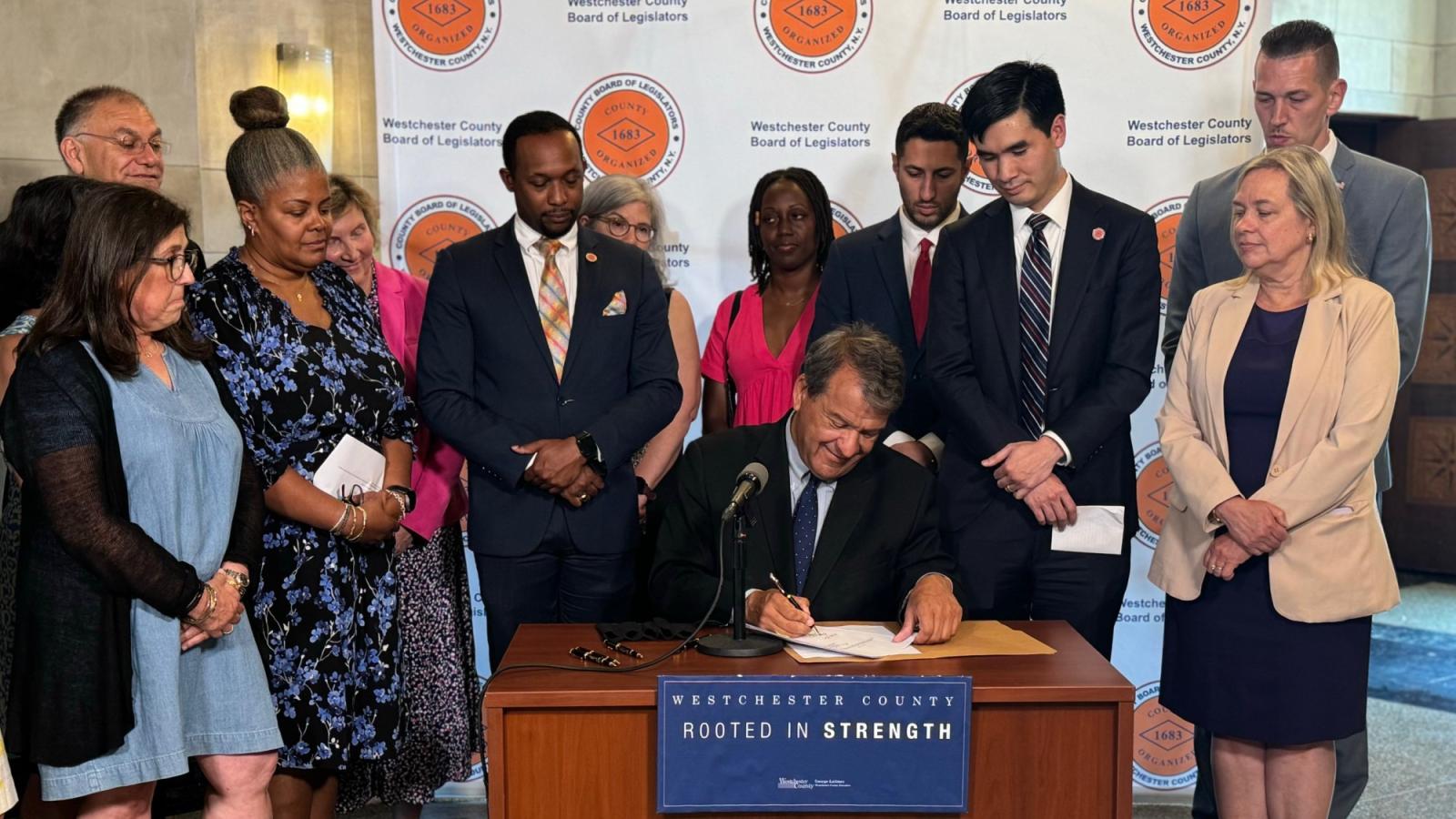
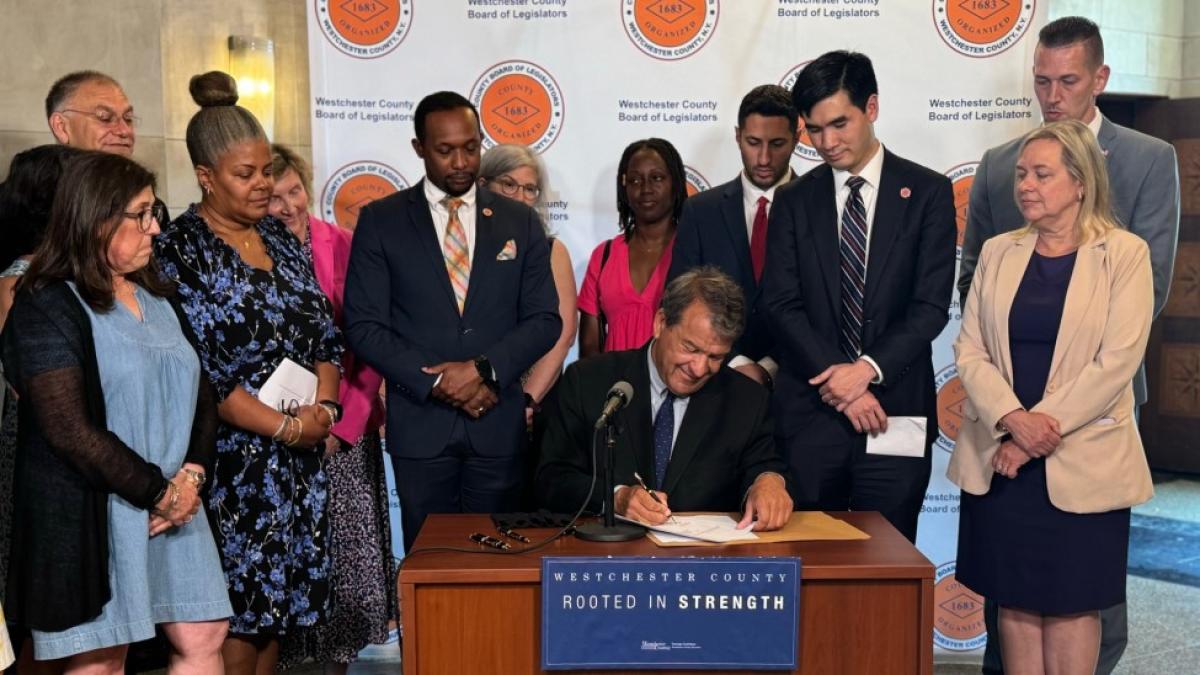
The Pace Women’s Justice Center joined members of the Westchester County Board of Legislators and Westchester County Executive George Latimer for the signing of the Safety Measures for Survivors of Domestic Violence Act. The Act is part of an ongoing effort to protect victims and survivors of domestic and gender-based violence. In part, the Act will provide free lock changes and the installation of a video doorbell at a domestic violence survivor’s home.

During the press conference, which was attended by numerous local organizations and advocates for the Act, Cindy Kanusher, Executive Director of the Pace Women’s Justice Center spoke. “The Pace Women’s Justice Center is so grateful to our County Executive and our County Legislators for their continued support of victims of domestic violence,” said Kanusher. “Through our work providing free legal services to thousands of survivors annually, we know that victims face numerous challenges that prevent them from leaving an abusive relationship. The program established by this law, which will pay for lock changes and the installation of security camera systems, will give survivors the opportunity to remain safely in their homes and rebuild their lives. It will be an invaluable resource for so many in our community.”
Elisabeth Haub School of Law student Laurel Jobe, a rising 3L, played an important role in the research that led to the new legislation, which will, in part, provide free lock changes and the installation of a video doorbell at a domestic violence survivor’s home. Additionally, under the Act, the Westchester County Office for Women will contract with designated community-based organizations, including the Pace Women’s Justice Center (PWJC). PWJC and other organizations will conduct intake with survivors to determine program eligibility, coordinate with licensed vendors regarding the installation of the dwelling safety measures, conduct an education and outreach program, and more.
PWJC Executive Director, Cindy Kanusher, Esq., was recently selected for inclusion on City & State’s inaugural "Trailblazers in Law" list. The Trailblazers in Law award spotlights attorneys, academics, public officials, and other influential figures who have made an impact in the legal field in New York. She also recently accepted the Visionary of Justice Award at Elisabeth Haub School of Law at Pace University’s 29th annual Law Leadership Awards Dinner.With over 25 years of dedicated service to PWJC, Kanusher has demonstrated unwavering commitment and exceptional leadership in advocating for victims and survivors of abuse as well as providing representation to the underrepresented. Throughout her career, Cindy has been instrumental in shaping PWJC's mission and vision. During her tenure, PWJC has grown into a highly respected, multi-faceted legal services and training center serving thousands of victims and survivors of interpersonal violence annually, providing invaluable legal assistance to those in need and tirelessly championing the cause of justice.
Watch the Press Conference
Haub Law Dean Horace Anderson Named to Prestigious 2024 Trailblazers in Education List
The Elisabeth Haub School of Law at Pace University is proud to announce that Dean Horace E. Anderson Jr. was named to the “2024 Trailblazers in Education” list published by City & State New York magazine. The list recognizes “100 professionals who are keeping New York at the fast-paced forefront of higher education" and includes presidents, professors and provosts, lobbyists, lawyers, nonprofit entrepreneurs, advocates, and others who are shaping the future of education.
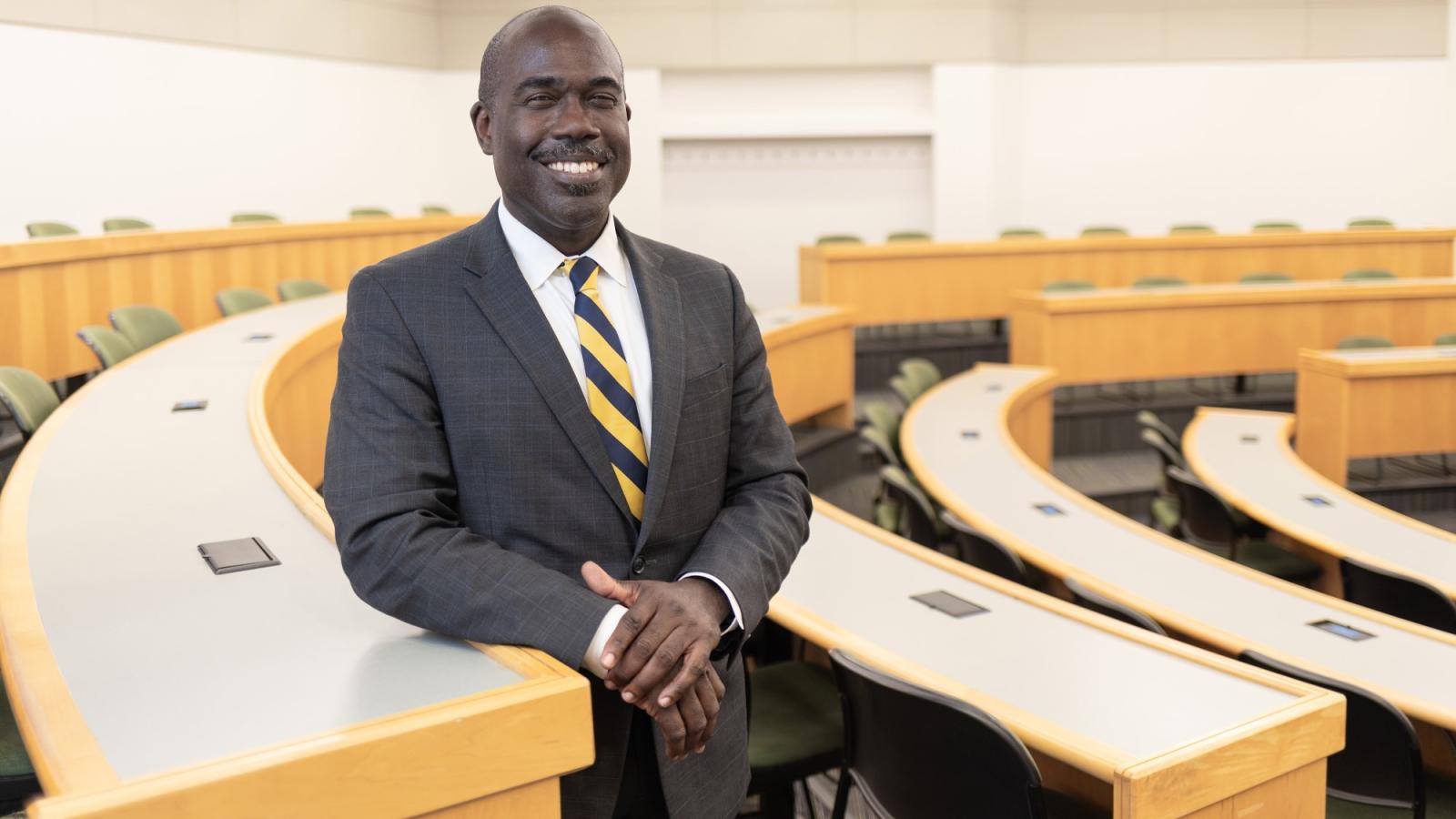
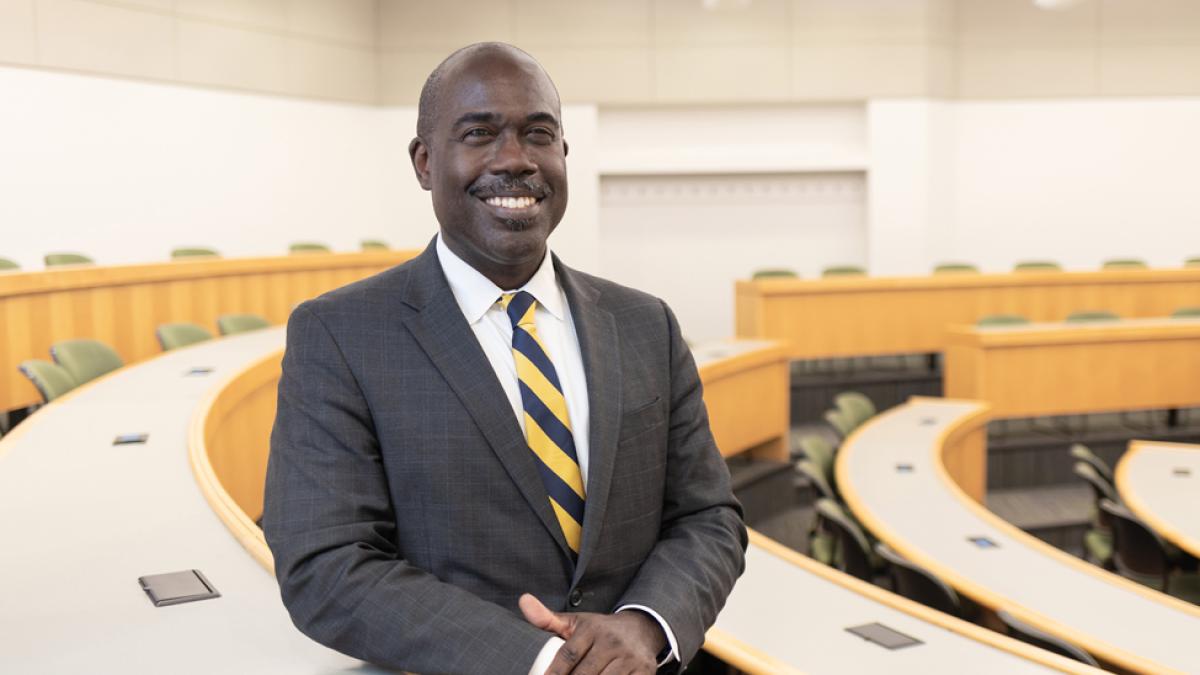
The Elisabeth Haub School of Law at Pace University is proud to announce that Dean Horace E. Anderson Jr. was named to the “2024 Trailblazers in Education” list published by City & State New York magazine. The list recognizes “100 professionals who are keeping New York at the fast-paced forefront of higher education" and includes presidents, professors and provosts, lobbyists, lawyers, nonprofit entrepreneurs, advocates, and others who are shaping the future of education.
Horace E. Anderson Jr. is the ninth dean of the Elisabeth Haub School of Law at Pace University, appointed in December 2019. Prior to this appointment, Dean Anderson had been serving as Haub Law’s interim dean. Of Dean Anderson, the publication notes that, “Under Horace E. Anderson Jr., Pace University’s Elisabeth Haub School of Law has increased its enrollment, donations, full-time faculty and partnerships with leading universities worldwide. Anderson, an intellectual property and technology law specialist who joined the faculty in 2004, recently established the Sustainable Business Law Hub, a research incubator devoted to global sustainability. The school now boasts the nation’s top-ranked environmental law program, according to U.S. News & World Report. Anderson also strengthened social justice and community ties through the new Pace Access to Justice Project.”
View the full City and State 2024 Trailblazers in Education list
Democracy in a Hotter Time: Climate Change and Democratic Transformation
Pace | Haub Environmental Law Professor Katrina Fischer Kuh co-authored a chapter in a book released today from MIT Press, Democracy in a Hotter Time: Climate Change and Democratic Transformation, edited by David Orr.
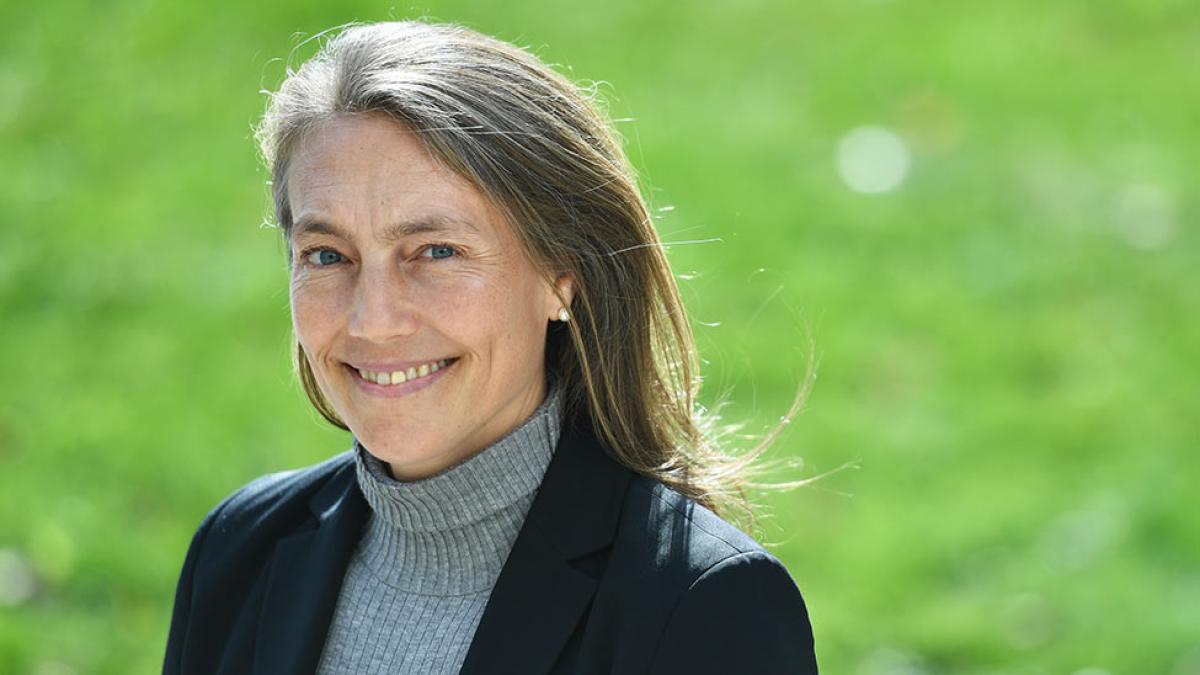
Pace | Haub Environmental Law Professor Katrina Fischer Kuh co-authored a chapter in a book released today from MIT Press, Democracy in a Hotter Time: Climate Change and Democratic Transformation, edited by David Orr.
The chapter, titled Can the Constitution Save the Planet?, identifies how and why the constitutional status quo is failing to meet the climate moment. Professor Kuh co-wrote the chapter with colleague James May, Distinguished Professor of Law and Founder of the Global Environmental Rights Institute at Widener University Delaware School of Law. Professor May holds an LLM from and has previously served as a Visiting Professor at the Elisabeth Haub School of Law at Pace University.
Passion and Pride: Haub Law’s Chief Storyteller Builds Community at the Law School and in her Own Hometown
Alumnus Jessica Dubuss ’09 has been using her legal acumen and writing skills in ways she never imagined back in law school. As Executive Director of Marketing and Communications at Haub, she is the law school’s chief storyteller, sharing the impressive achievements of our students, alumni and faculty across our many communications channels. In her personal life as a mom of soon to be five (!) young children, she has also tapped into her law school advocacy skills in her mission to bring diversity, equity and inclusion to her small hometown, organizing the community’s first ever PRIDE celebration among other DEI events and initiatives for youth.
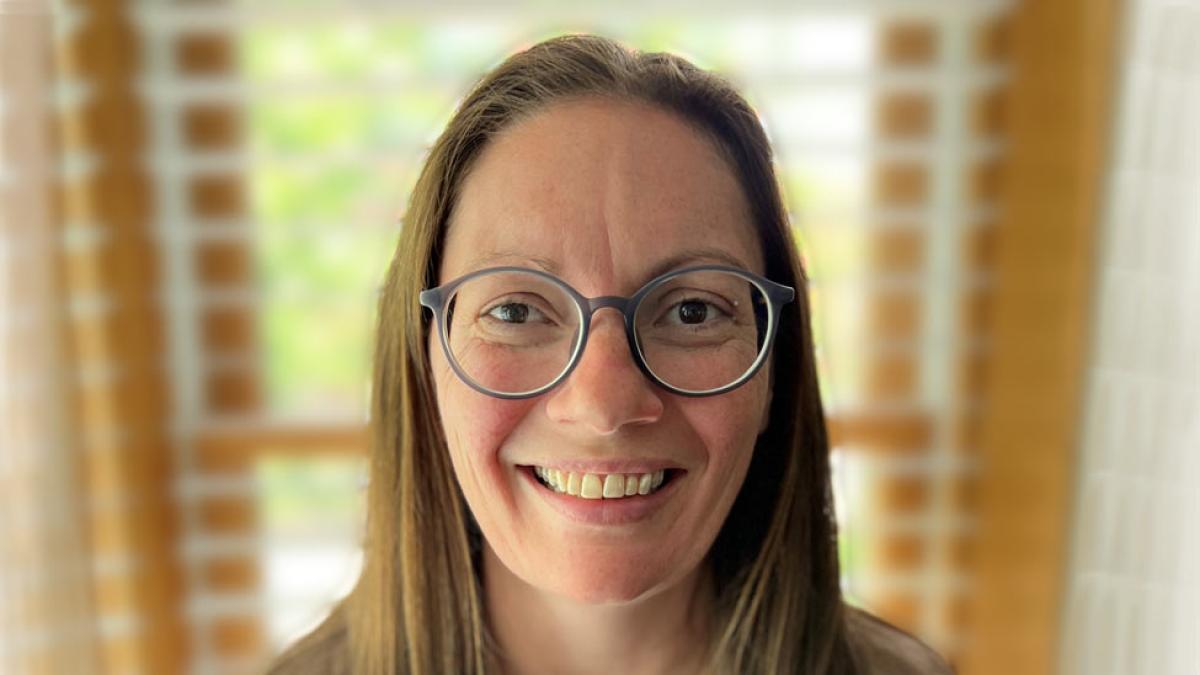
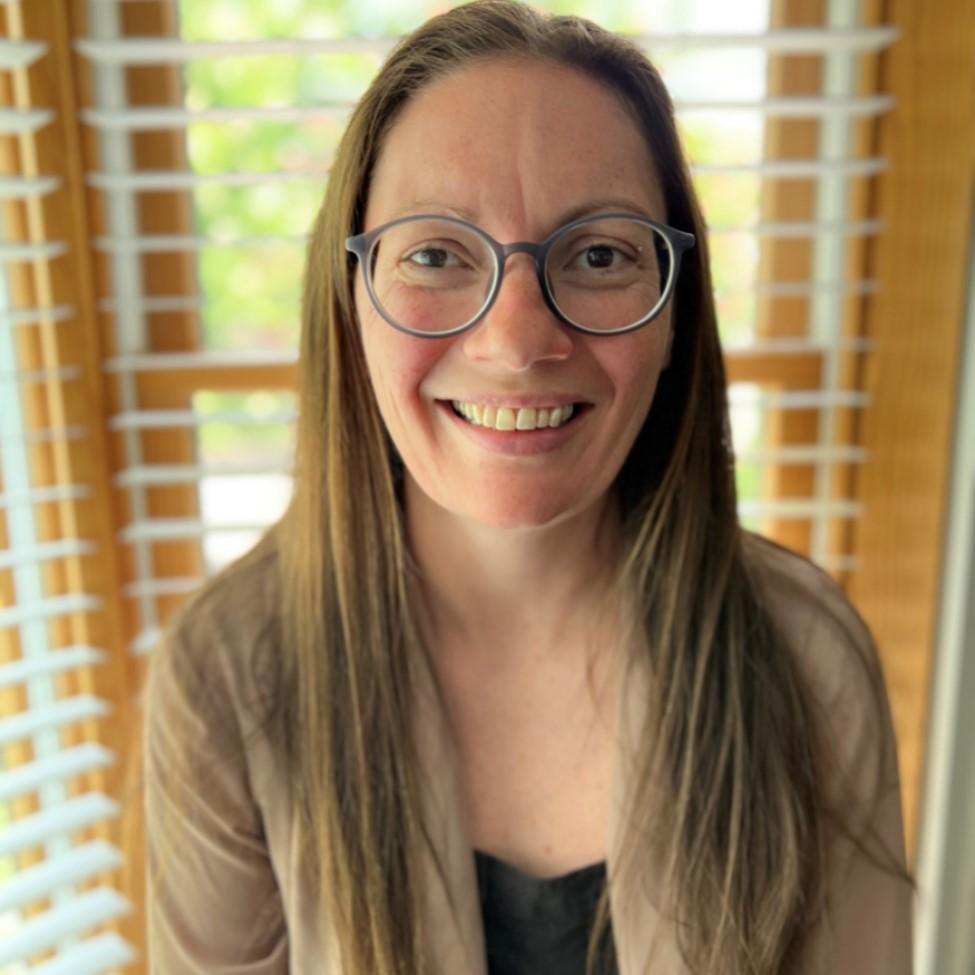
Growing up on Long Island, Jessica Dubuss ’09, has fond memories of visiting her grandfather at his law firm when she was a child. As a young girl, she admired his career as a successful lawyer, which eventually inspired her own studies and career path.
Fueled by her passion for reading and writing, Jessica majored in English and Religious Studies at Fairfield University, with the intention of becoming a high school teacher or editor. However, as she approached graduation, she remembered the excitement that consumed her when she would visit her grandfather’s firm, and she reevaluated the trajectory of her career path to consider a career in law. She felt law school would enable her to hone and utilize her academic strengths in a more structured way.
After taking a year off in between Fairfield University and applying to law school to test the legal waters by working as a paralegal, Jessica applied to several law schools. Haub Law emerged as the front-runner because of the personal touches she received from Cathy Alexander and the admissions team, as well as a personal letter she received from Professor John Nolon, sharing the incredible work the Land Use Law Center was involved with.
Jessica was invigorated by her time at Haub Law. With each class she took, she became more inspired by the vast opportunities that existed within a legal career. Her breadth of knowledge quickly expanded based on the impassioned professors with whom she studied. “The professors are what really stick with me from my time at Haub Law. I think you would be hard pressed to find a more dedicated and knowledgeable faculty elsewhere,” said Jessica. During her 1L year she shared that Criminal Law caught her interest after taking a class with Professor Leslie Tenzer, that interest continued as she studied criminal procedure with Professor Bennett Gershman. “I was constantly discovering new areas of law that held my interest and challenged me – whether it was learning the intricacies of Civil Procedure with Michael Mushlin, a newfound passion for tax law after taking Professor Bridget Crawford’s tax class, education law after studying with Professor Emily Waldman, or arbitration and mediation after a semester in Professor Jill Gross’s class.” A highlight of her time at Haub Law was studying property law – she took every real property course with Professor Shelby Green and Professor John Nolon and landed an internship with the Land Use Law Center and as a research assistant for Professor Nolon as well.
When Jessica graduated law school, she held different positions in Westchester and New York City firms, but she slowly realized that although she enjoyed being an attorney, she did not love her field of practice. She started to explore non-traditional legal careers and came across a development position at Haub Law which she found interesting and a way to stay connected to the practice of law. She didn’t have any experience in fundraising, but she took a chance in applying and, in turn, Dean Emerita Michelle Simon took a chance on her and offered her the position. In 2011, Jessica rejoined the Haub Law community, this time as a staff member.
The development position led to additional responsibilities in alumni relations and communications, allowing her to apply her writing skills. After spending a little over three years in development, in early 2015, Jessica transitioned to the External Affairs and Communications team where she is currently the Executive Director of Communications, responsible for sharing stories of students, alumni, faculty and their achievements with the broader community, drafting press releases, and managing a variety of communications channels and publications, including Haub Law’s weekly newsletter and its annual magazine. Jessica admits it was an intimidating transition at first to tell the stories of Haub Law faculty because, as a student, she held incredible admiration for all her professors. As a staff member, Jessica still holds admiration for Haub Law’s faculty, but in a different light. “I think being a former student has been an advantage in my role because I have an understanding of the legal reasoning behind the work of the faculty and also have a pre-existing relationship with many of the faculty. It makes for a more natural and cohesive work environment,” Jessica shares.
On a personal note, Jessica moved back to her hometown of Floral Park/Bellerose Village with her wife Amanda, who also grew up in Bellerose Village and went to high-school with Jessica. Together, they have four children: Olive (10), Xander (8), Wells (5), Dash (2.5), and another one on the way this fall! They also recently adopted a golden retriever puppy, Lucky.
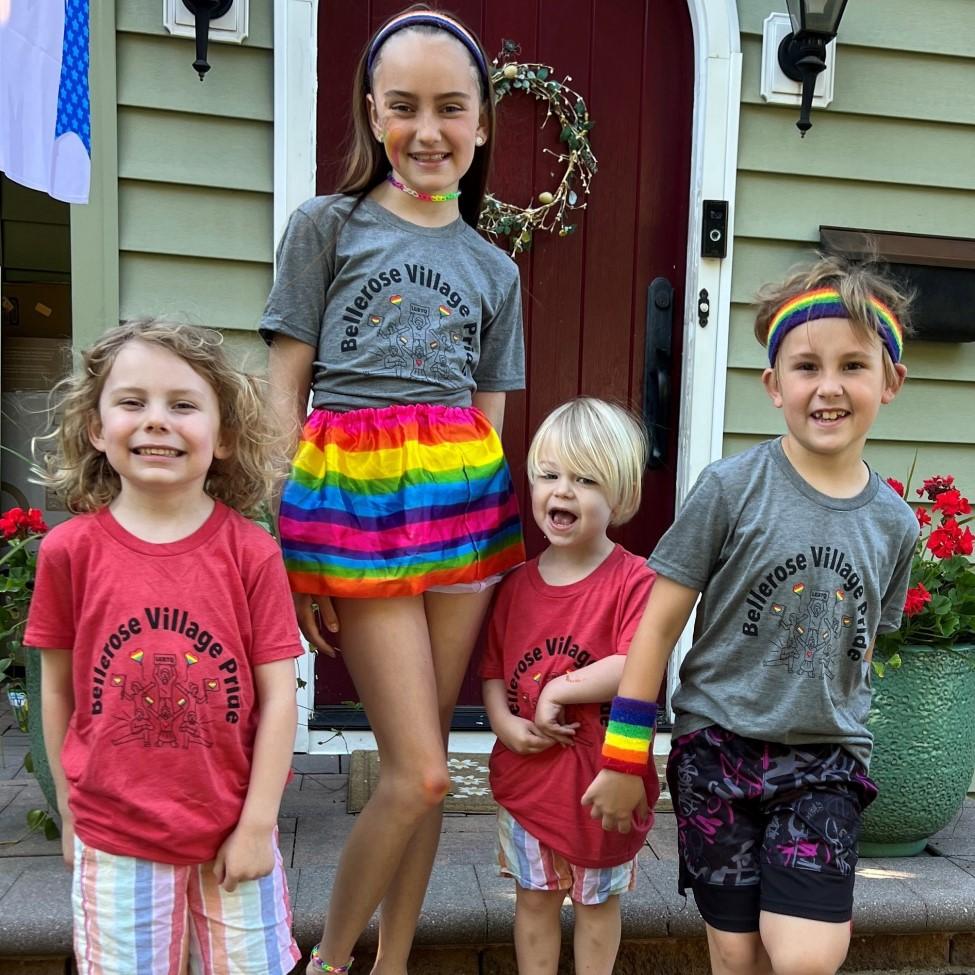
Jessica is an active member of the Bellerose Village community, which has a population of around 1,200. In 2020 she was appointed Recreation Commissioner for the village, where she helps organize a summer camp and other recreation events for the town. She saw an opportunity to advocate for her small town to take a step forward in becoming more welcoming and inclusive of all residents, including her own family. In 2021, Jessica proposed the town host a Village PRIDE 5K Run/Walk, and with the support of the local Junior Women’s Club of Bellerose, her idea received resounding support from residents in her village, the neighboring village, and local businesses.
The Bellerose Village PRIDE Celebration has continued to grow each year with nearly 300 kids and adults participating this past June. Centered around family-fun, the event includes kids’ activities, a DJ, food, drinks, and raffle prizes provided by local businesses, with proceeds raised by the Junior Women’s Club donated to various LGBTQ+ organizations. “While this event is very personally important to me and my family and other LGBTQ+ families in the area, it is also a very important event for our entire larger neighborhood community,” shares Jessica. “At the end of the day, everyone deserves to feel a sense of belonging and that’s what I hope results from this event and for our broader community.”
But Jessica hasn’t stopped there on her mission to create a more diverse and inclusive culture in her community. For the past few years, she has organized a “Chalk for Pride” event with the support of her children’s local elementary school administration where students, teachers, school administration, and community members gather after school in early June to kick-off Pride month and decorate the front walkway to the elementary school with colorful and positive chalk creations and messages of support. Additionally, this past year, with Junior Women’s Club of Bellerose, she created and organized a Diversity, Equity, Inclusion, and Belonging scholarship at her local elementary and high schools.
When asked how her law degree has assisted her in her professional and personal goals, Jessica said, “A law degree is an invaluable tool, which has helped me advocate for myself and others. The important work of diversity, equity, inclusion, and ultimately a sense of belonging is largely based on advocacy and education. Having a legal background has definitely given me the confidence to create change within my local community.”
Professor Michael Mushlin Featured in Civil Rights Oral History Project
Haub Law Professor Emeritus Michael Mushlin was featured in an oral history video series produced by the Civil Rights Litigation Clearinghouse. During the candid interviews, Professor Mushlin talks about his childhood in Meridian, Mississippi, his education, and his early career, including his time as a lawyer with the Legal Aid Society's Prisoners' Rights Project where he litigated several cases on behalf of pre-trial detainees in New York City's jail system. He reflects on lawsuits challenging conditions in the New York City jails in the 1970s and 1980s, including Rhem v. Malcolm, Benjamin v. Horn, and Bell v. Wolfish, as well as the effect of the Prison Litigation Reform Act.
